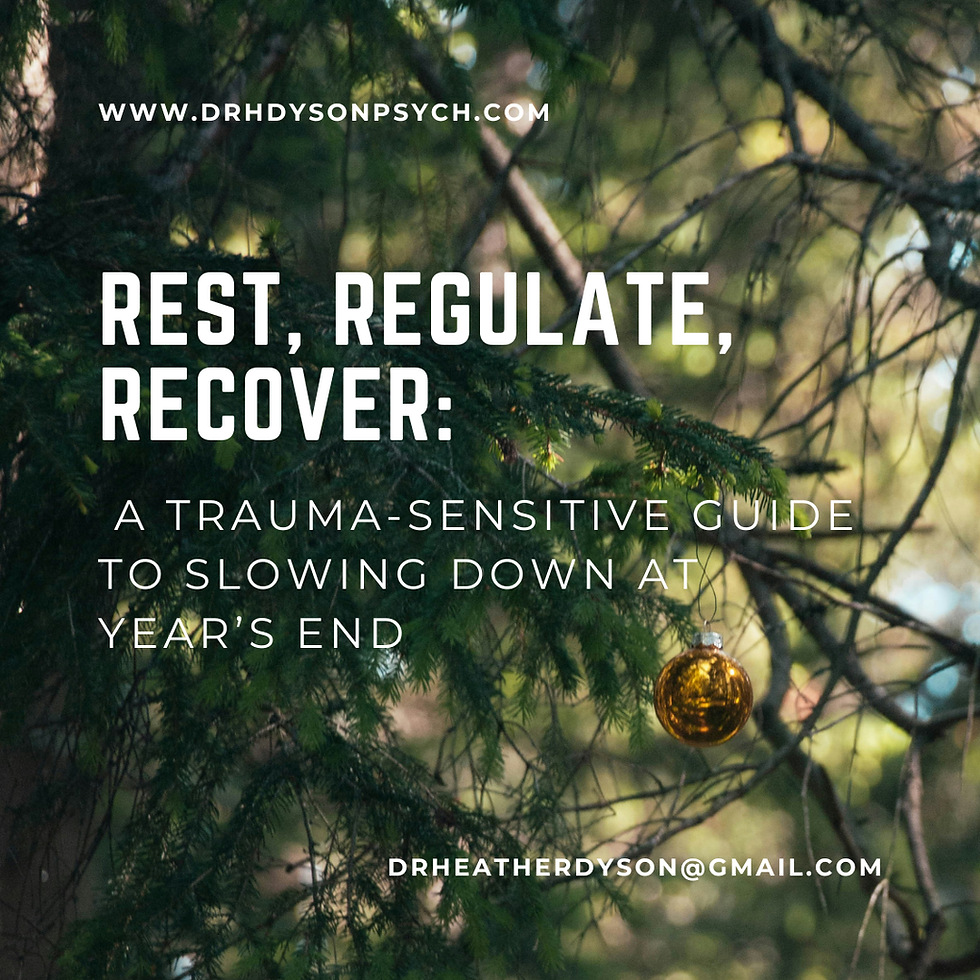8 Signs of Domestic Abuse
- Dr Heather Dyson

- Apr 21, 2021
- 3 min read
What is domestic abuse?

Domestic abuse (DA) is a pattern of behaviour on the part of an abuser designed to control their partner. This means that an abuser may use psychological, sexual, or physical violence to try to get power or control over the other. It can happen to anyone, at any point during a relationship, including once the relationship has ended. Despite what the abuser might suggest, DA is never the fault of the individual who is the victim. It is a crime, and accounts for a fifth of all offences recorded in the UK, with the police recording 206,492 DA incidents between March to June 2020 (ONS, 2021).
Forms of domestic abuse
Psychological abuse – Includes threats and manipulation, name-calling, and ‘gas-lighting’
you (blaming you for their behaviour). It involves the regular and deliberate use of a variety of words and actions used with the intent to frighten or weaken another individual emotionally and mentally, and/or distort or confuse a person’s thoughts and actions. Examples of this can include verbal aggression, intimidation, stalking, insults, defamation, and humiliation.
Economic abuse – Denying or controlling access to bank accounts of financial resources. The victim may have their wages taken from them, could be prevented from working, or put into financial debt. This form of abuse limits and controls their partner’s actions and their freedom of choice.
Sexual abuse – Victims may be manipulated or coerced into sexual behaviours/acts which they do not want to be part of and which they do not consent to. It is an act of violence committed against someone whom the abuser perceives to be ‘weaker’ than then. It is a deliberate act with the aim to control and humiliate the victim.
Coercive Control – Coercive control is an act or a pattern of assaults, threats, humiliation and intimidation that is used to harm, punish, or frighten the victim. This behaviour is aimed at isolating the victim from their support network, depriving them of independence and regulating their everyday behaviour.
Physical abuse – Physical abuse includes any act causing injury to another person by way of bodily contact. It often starts gradually with a push or slap, which become increasingly aggressive/physical over time. Physical abuse is always illegal.
Tech / Online abuse – Abusers may read emails, check text messages, or monitor the location or social media posts. In extreme cases, victims have reported that their partners have used spyware or GPS locators to monitor their whereabouts.
8 signs that you may be in a domestically abusive relationship
Your partner is/uses…
jealous and possessive of you. They stop you seeing friends or family or monitor what you say to them.
charming one moment and aggressive the next, leaving you walking on eggshells.
frequently putting you down with insults about your physical appearance, intelligence, abilities, or undermining your confidence.
controlling of what you wear, where you go, and who you see.
limits what you spend and/or keeps your money away from you.
pressures you to have sex, or engage in sexual acts that you do not consent to.
monitors or tracks your location.
anger and intimidation to frighten and control you?
Early warning signs that you might be in an abusive relationship.
You’re increasingly becoming more critical of yourself — thinking you are stupid or fat or very lucky to have a partner.
You increasingly defer to your partner’s opinions believing hat your beliefs are less valid than theirs.
You notice that you’re feeling increasingly stressed and anxious. You may be struggling to sleep, or be experiencing nightmares.
You frequently have that feeling of ‘dread’ for not ‘apparent’ reason.
You find yourself making excuses, or giving explanations for your partner’s behaviour.
You find yourself worrying about how your partner will react to various situations, consequently avoiding certain activities / behaviours / individuals.
You frequently avoid saying things, or giving your opinions, because you’re worried about upsetting your partner.
You feel scared when your partner is angry because you can’t predict their behaviour.
You feel a pressure to change your behaviours or who you are as a person.
You feel like you’re walking on eggshells.
You’re staying in more and seeing less of family and friends to avoid arguments with your partner.
Getting help
If you’re concerned that you, or a loved one, is experiencing domestic abuse you can access support through…
If you feel that you are at particular risk of harm, or your life is at risk, please contact your GP or 999 immediately.
If you have experience DA in the past and now struggle with symptoms of trauma, such as nightmares, flashbacks, hypervigilance, anxiety, depression, intrusive memories, or rumination, you may wish to speak with your GP about accessing psychological support. Alternatively, if you feel that you would like to discuss your difficulties with a specialist in the area, please feel free to contact me either through my website (https://www.drhdysonpsych.com/) or via email (drheatherdyson@gmail.com).
Photo by Sydney Sims on Unsplash




Comments